One of the most authentic experiences of our second trip to India was renting a pair of classic Indian Royal Enfield motorcycles and embarking on a journey with our friend Eloi (WeAreThePassengers) to the southernmost tip of India: Kanyakumari, in the state of Tamil Nadu.
We were relaxing on the beach in Varkala when we came up with the idea: to travel the distance to the end of the country by motorcycle. Why not? Well, we could think of a few reasons to say no—like India’s chaotic traffic or the sore muscles we knew we’d end up with—but again, we thought, why not?
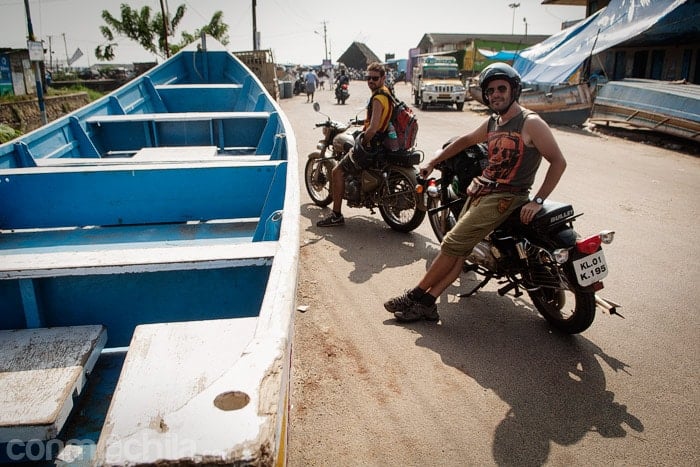
That’s how we ended up renting two massive bikes and setting off along the west coast, making our way to the end of India. Along the way, we visited Kovalam, Kanyakumari, and several stunning beaches and landscapes.
The first part of the journey was smooth, despite the fact that we had no rear-view mirrors, the brakes on our bike didn’t work properly, and the rear brake and gear shift were reversed. The roads were in good condition, and we were fresh. By noon, we arrived in Kovalam for lunch.
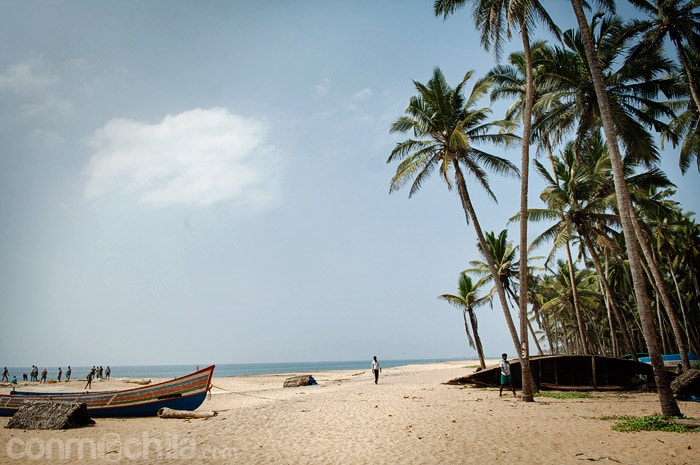
While searching for a restaurant, we were mesmerized by a fascinating scene: local fishermen were pulling in a net to the rhythm of a song they sang in unison. Like a siren’s call, we were drawn to them, standing there for several minutes, completely captivated by the moment.
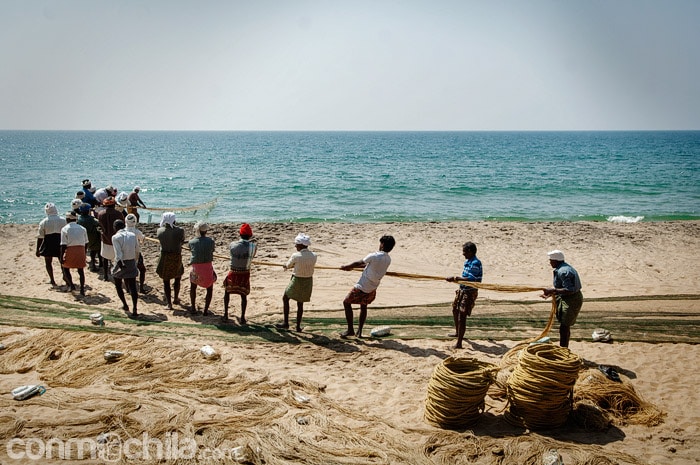
In the afternoon, the road became more challenging. The smooth pavement of the morning gave way to a pothole-riddled road, increasingly crowded with cars, trucks, tuk-tuks, and motorbikes appearing from every direction.
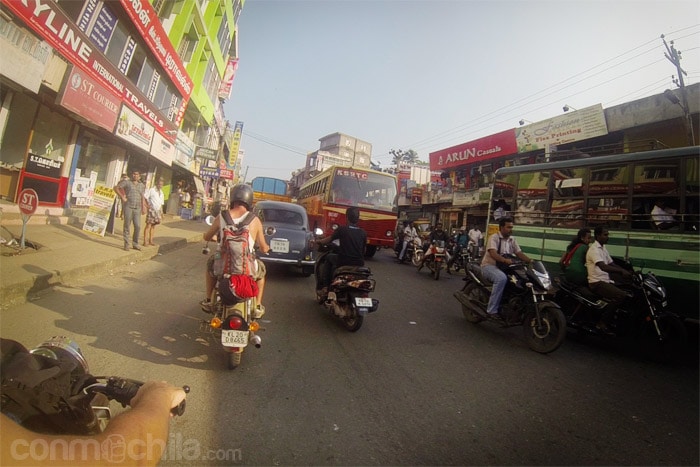
Traffic slowed us down, turning the journey into a caravan of vehicles. The smoke from exhausts and dust from the road filled our lungs, making the ride feel more like an ordeal.
The last hour of the trip was a race against time, as we wanted to reach Kanyakumari before sunset. We arrived in the city just minutes before the sun began to set, parked the bikes, hurried through the market, and made our way to the southernmost point.
Hundreds of people had gathered to witness the same spectacle we were there to see. Moments later, the sun disappeared into the horizon, greeted by a roar of applause.
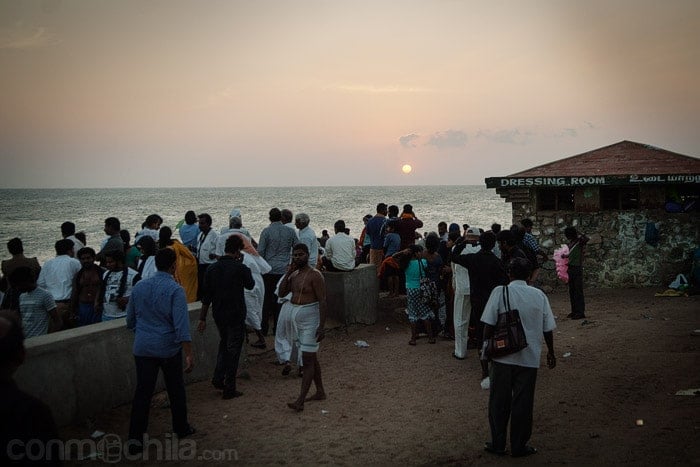
It was then that we noticed the strange atmosphere—a curious mix of Indians from all over the country and a few foreigners who seemed completely out of place.
Toni compared it to the dregs of chai, where the leftover bits fall and blend together. To top it off, the market was filled with odd items—nothing that I’d even consider buying.
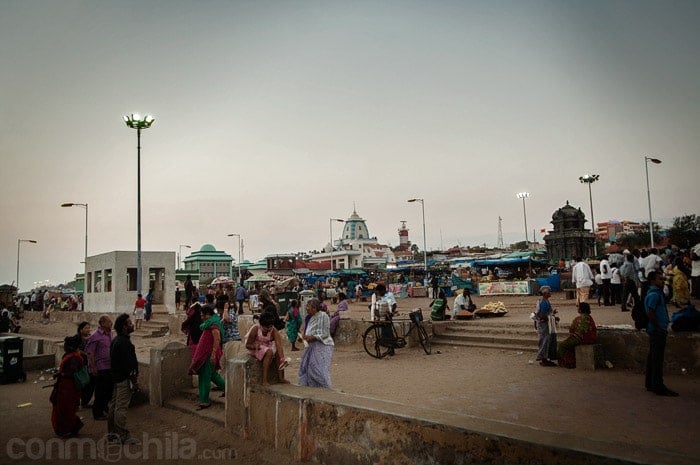
The next morning, we could have woken up early to see the sunrise from the same spot where we had watched the sunset, but waking up early isn’t really our style. After breakfast, we headed back to the beach area and visited the Gandhi Memorial before saying goodbye to Kanyakumari.
From the top of the building, we could see the end of India, with water stretching out in every direction.
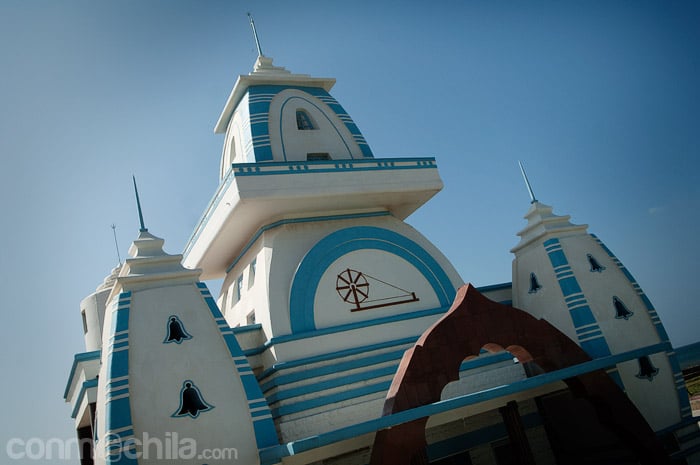
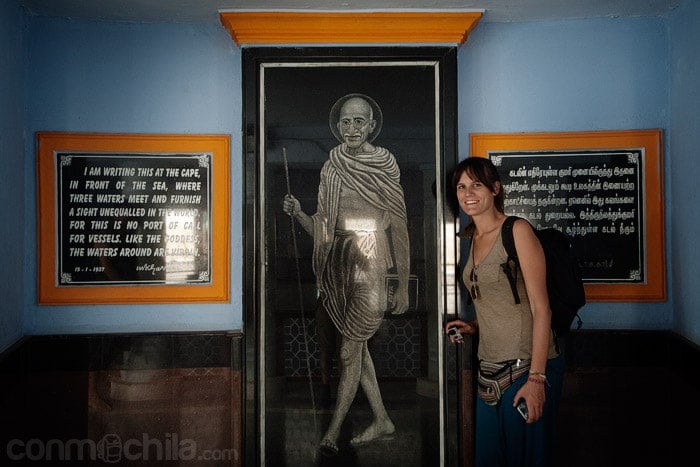
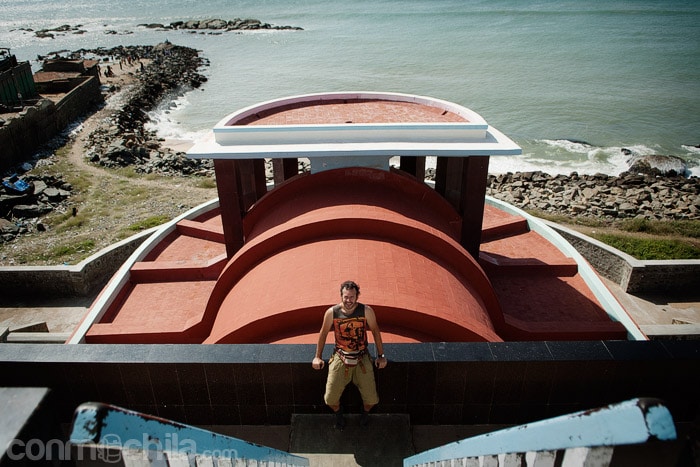
Back on the bike, we realized our sore muscles hadn’t recovered from the previous day’s long ride, so we did our best to make ourselves comfortable. Just like the day before, Eloi led the way with the GPS, and we followed.
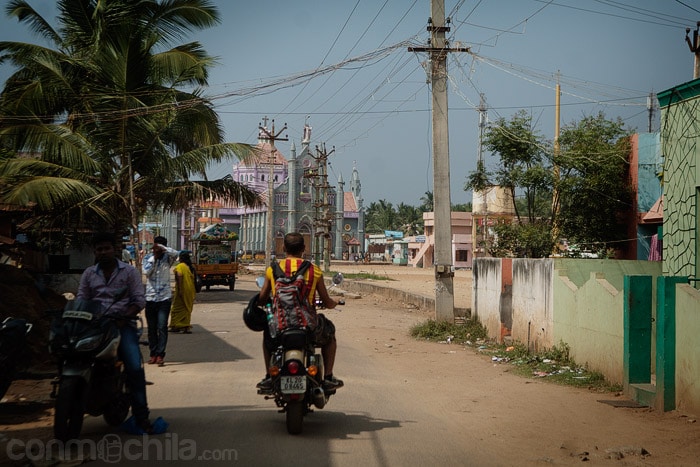
This time, we took much quieter roads, and with hardly any traffic that morning, we enjoyed the journey much more, stopping to visit a few beaches and passing through small villages.
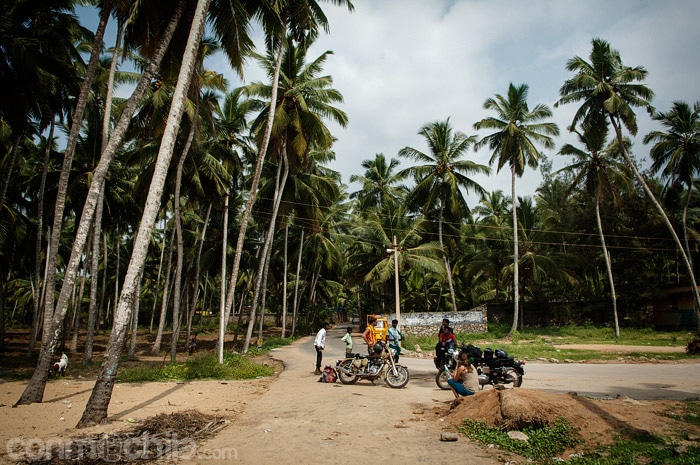
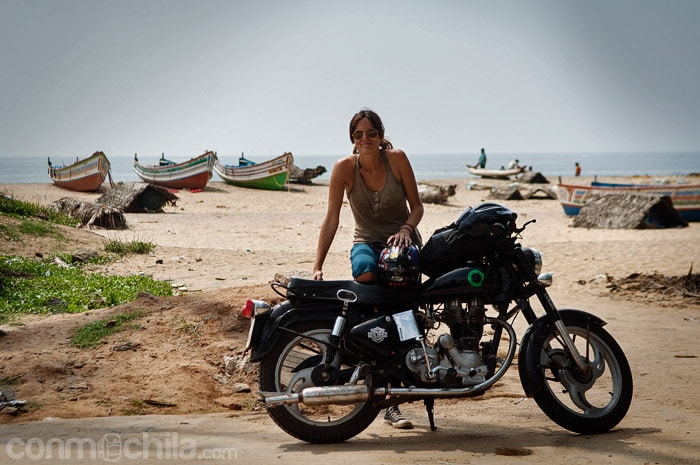
By noon, we arrived in Kovalam and had lunch there again, this time along the seafront, where most of the tourists were gathered. Over lunch, we tried to muster enough energy to tackle the toughest part of the journey: the return to Varkala.
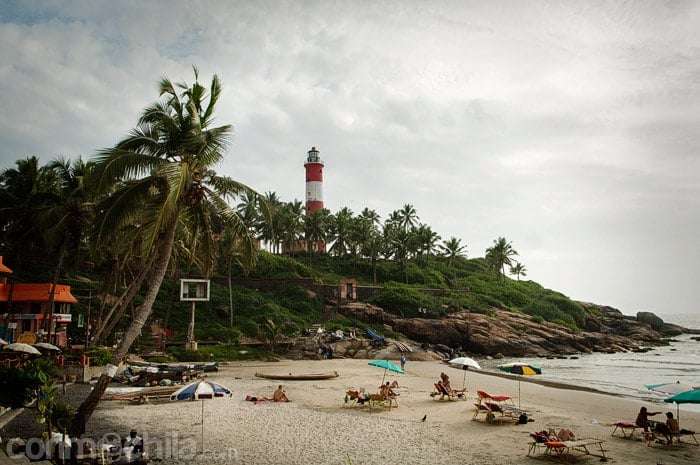
In the afternoon, the traffic became overwhelming, the exhaust fumes from the trucks suffocating us, and our bodies growing increasingly weary.
The couple of hours it took to reach our guesthouse felt like an eternity, but we finally arrived in the city at almost the same time as the previous day, where we said goodbye to our noisy yet unique motorbikes.
The trip had been short but intense, and we wanted to end it with a dinner at a beachside restaurant. Now, no one could say we hadn’t been to “the end of India.”